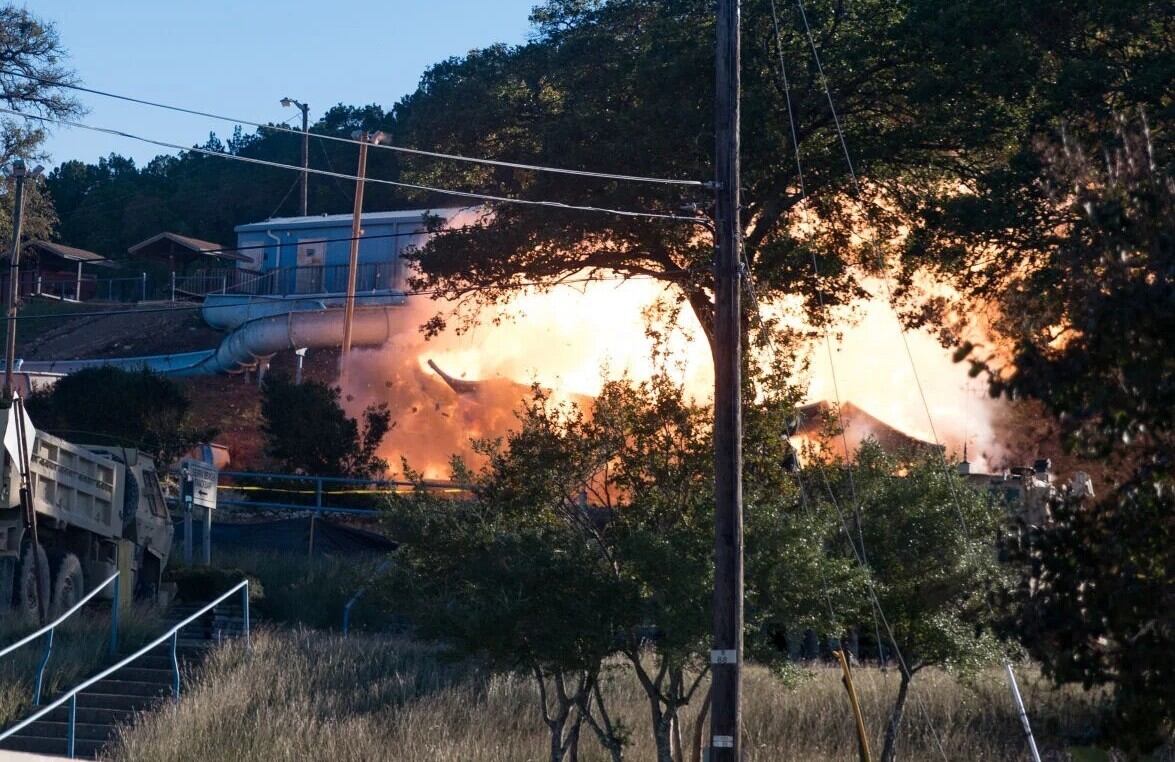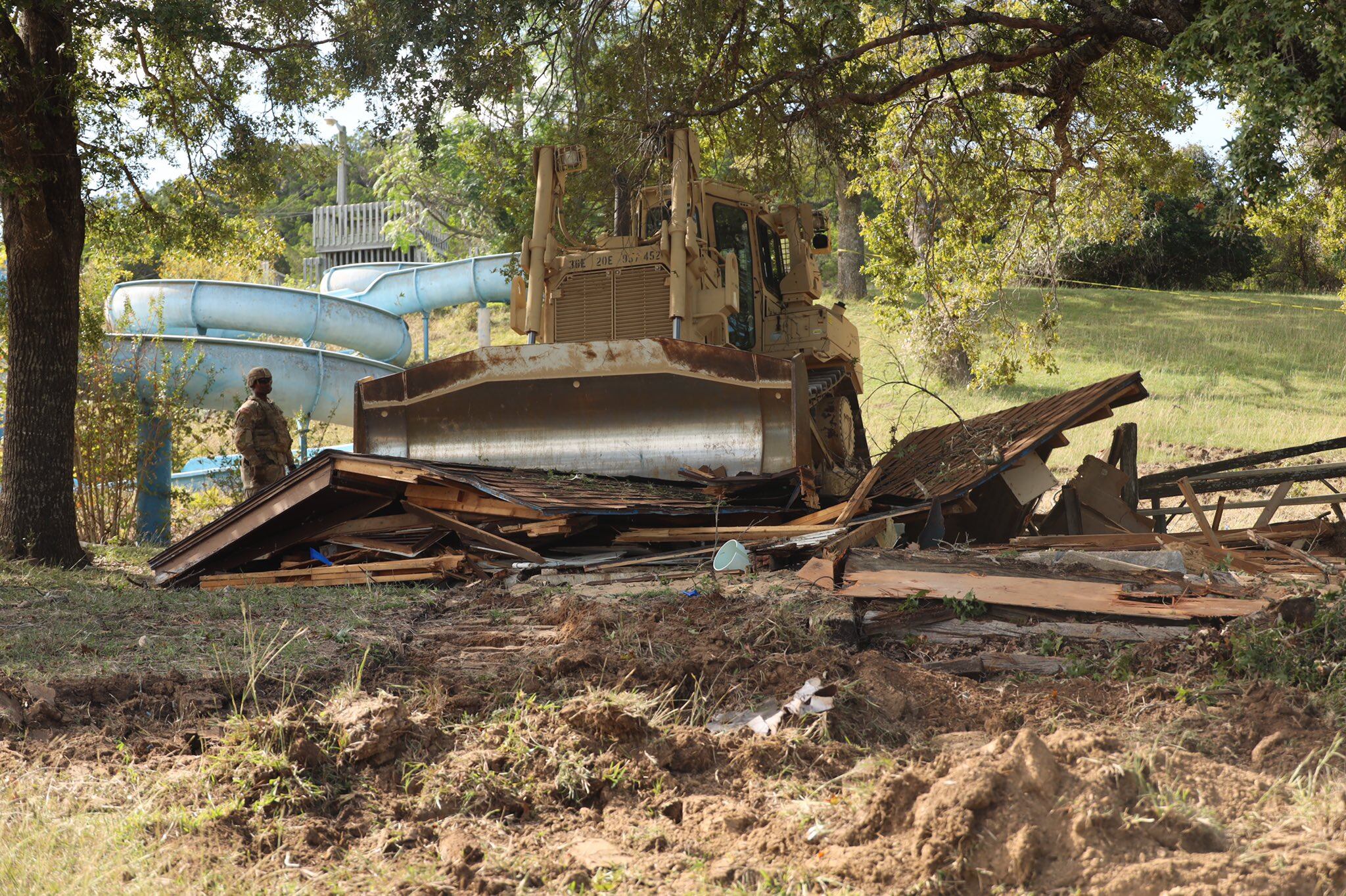There are two types of combat engineers: those who say demolition is their favorite mission, and those who are lying.
Sappers from the 36th Engineer Brigade at Fort Hood, Texas, had a chance to carry out a real-world demolition mission over the past two months as they destroyed a small waterpark at the installation’s Belton Lake Outdoor Recreation Area. The mission’s planning began in July, according to an Army release.
The Fort Hood waterpark had not been used since 2017.
In a nearly 700-word release about the demolition, officers from the 937th Clearance Company tried to convince people that the mission saved money and had great training value. We’re not saying there weren’t cost savings or any training value to the task; we’re just pointing out that those were the words of men who just got to blow up a waterpark.

“Having troops do this is saving III Corps and MWR (Directorate of Family and Morale, Welfare & Recreation) a lot of money,” said the 937th’s commander, Capt. Jared Whitaker. “Those funds can be turned by MWR into something else that’ll benefit not just the Soldiers and their families, but people in the area. In that case, it’s like paying it forward to, not just our unit, but everyone that lives here.”
Whitaker explained that the hand-on demolition work made for a one-of-a-kind exercise with “a lot of different training for every occupation in the company.”
“Our combat engineers get the opportunity to calculate and construct specific charges not often used,” the commander said. “Our equipment operators got a lot of stick time using the machinery...to move a significant amount of earth. When we were breaking the concrete, we were using tools that haven’t really been used in a long time.”

The sappers used detonation cord to cut the waterpark’s two 120-foot slides into smaller sections that could be carried off more easily, according to 1st Lt. Ben Lessard.
Some commenters on social media lamented that this was a missed opportunity for more training, though.
“Why didn’t the Army...simulate real world conditions of a [large-scale war] where we may need to maneuver in uncommon terrain environments?” asked one Reddit user. “The whole 101st [Airborne Division] could have air assaulted into...the park instead of whatever they’re doing [right now].
“And then we coulda blown it up,” the Reddit user added.
Regardless of whether the small park could’ve yielded any more training value, Whitaker is pleased with what his troops got out of it.
“This project is likely the capstone for the company and a significant one for the battalion this year,” the commander said. “This is the largest task that we’ve taken on in a long time and probably one of the most unique things that these Soldiers are going to do or have done.”
Davis Winkie covers the Army for Military Times. He studied history at Vanderbilt and UNC-Chapel Hill, and served five years in the Army Guard. His investigations earned the Society of Professional Journalists' 2023 Sunshine Award and consecutive Military Reporters and Editors honors, among others. Davis was also a 2022 Livingston Awards finalist.
Tags:
Army DNRsapper demolitionarmy combat engineercombat engineers blow stuff uparmy explosivesblow stuff up armycombat engineer demolitionIn Other News















